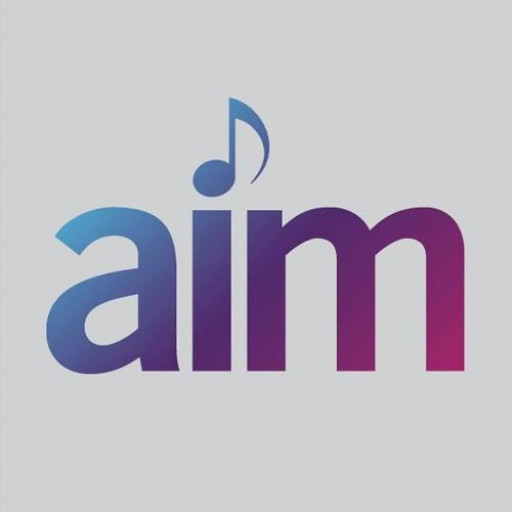Photos of university / #unimelb
The Bachelor of Music at the University of Melbourne offers students an exceptional opportunity to develop their musical talents within a comprehensive and dynamic academic environment. This undergraduate degree is designed for individuals passionate about exploring the diverse worlds of music performance, composition, musicology, and ethnomusicology. Over the course of the program, students are encouraged to cultivate their technical skills, deepen their understanding of music theory, and engage critically with musical history and cultural contexts. The curriculum integrates practical training with scholarly inquiry, ensuring graduates are well-equipped for careers in performance, teaching, music research, and the broader arts sector. Students can choose from various specializations, including Performance, Composition and Music Technology, and Musicology. The program emphasizes hands-on practice, with ample opportunities for solo and ensemble performance, as well as access to state-of-the-art facilities and industry-standard equipment. Alongside instrumental mastery, students gain competencies in music analysis, critical listening, and innovative music production techniques. The University of Melbourne’s vibrant arts community, combined with its distinguished faculty of musicians, composers, and musicologists, provides an inspiring environment for creative and academic growth. Collaboration with peers and engagement with public performances and research projects are integral parts of the learning experience, fostering both artistic excellence and professional readiness. Graduates of the Bachelor of Music are prepared to pursue further studies or embark on careers in various fields including performance, education, composing, music therapy, ethnomusicology, and arts management. With its strong emphasis on both practical skills and theoretical knowledge, the program aims to develop versatile, imaginative, and intellectually rigorous musicians who can contribute meaningfully to the cultural landscape locally and globally.
The Bachelor of Music at The University of Melbourne offers students a comprehensive andDynamic program designed to develop their skills, knowledge, and understanding of music across a wide range of disciplines. This undergraduate degree provides a solid foundation in musical theory, history, and performance, while also encouraging students to explore areas such as music technology, composition, and ethnomusicology. The program emphasizes both practical and theoretical aspects of music, ensuring graduates are well-equipped for diverse careers in the music industry, education, research, and beyond.
Students enrolled in the Bachelor of Music have the opportunity to engage with world-class facilities and resources, including specialized rehearsal spaces, recording studios, and a comprehensive library of musical scores and sound recordings. The curriculum is carefully structured to balance individual practice, collaborative projects, and academic study, fostering both creative and analytical skills. Core coursework covers subjects like music theory, harmony, counterpoint, music history, and analysis, alongside applied lessons in instrumental and vocal performance. Students can choose specializations such as Contemporary Music, Classical Performance, Composition, or Musicology, tailoring their studies to their interests and career goals.
The program also incorporates a variety of performance opportunities, including concerts, masterclasses with renowned artists, and collaborations with other departments. These experiences aim to cultivate confidence, stage presence, and professional readiness. Additionally, students develop technological competencies related to music production, recording, and digital composition, aligning with current industry trends.
Research and innovation are integral to the program, with students encouraged to undertake projects that explore new musical ideas or historical interpretations. The University of Melbourne supports their academic pursuits through guidance from experienced faculty members, many of whom are active researchers and performers. The final year typically involves a major project or recital, demonstrating the student’s mastery and artistic development.
Graduates of the Bachelor of Music program graduate with versatile skills that open doors to careers as performers, composers, music educators, researchers, and industry professionals. They are also well-prepared to pursue postgraduate study in music or related fields. Overall, the program aims to nurture creative, critical, and resilient musicians who can contribute meaningfully to the vibrant cultural landscape of Australia and the world.
An undergraduate degree in any discipline and a prosperous 20-minute audition and also a quick interview.
The University of Melbourne offers a range of financial options for students enrolled in their Music programmes. Prospective students are encouraged to explore various scholarships, grants, and bursaries available through the university to support their studies. The university’s Scholarships Office provides detailed information on merit-based scholarships, which are awarded based on academic achievement, artistic talent, or specific criteria such as regional background or demographic factors. Many of these scholarships do not require repayment and can significantly reduce the financial burden of university education.
In addition to scholarships, students can consider applying for government-funded financial aid schemes, such as the Commonwealth Supported Place (CSP), which offers subsidized tuition fees for eligible domestic students. International students may need to explore different funding options, including private scholarships, external grants, and payment plans offered by the university. The university also provides detailed guidance on student loans, including information about the Higher Education Loan Program (HELP), which assists eligible students in deferring their tuition fee payments until after graduation.
The university recommends that students carefully plan their finances in advance; this includes estimating costs related to tuition fees, textbooks, instrument rentals, performance attire, and living expenses. On-campus accommodation options and student services can be accessed for additional financial support, and students are encouraged to make use of the university’s financial advisory services to create personalized budgets and explore employment opportunities such as part-time work on or near campus.
Furthermore, students enrolled in music programmes might have opportunities for financial support through specific music department initiatives, competitions, or partnership programs that promote emerging artists. Many students also benefit from external sponsorships and industry grants tailored to talented musicians and performers. Overall, the University of Melbourne is committed to making music education accessible and affordable, providing a comprehensive suite of financial resources designed to support students throughout their academic journey.
The Bachelor of Music at the University of Melbourne is a comprehensive undergraduate program designed to provide students with a solid foundation in both the practical and theoretical aspects of music. The program offers a diverse curriculum that encompasses performance, composition, musicology, and music technology, enabling students to develop their skills and knowledge across a wide range of musical disciplines. Students have the opportunity to engage in individual and group performances, participate in ensembles, and explore various musical genres and styles. The program emphasizes both the development of technical proficiency and the understanding of music's historical, cultural, and theoretical contexts. It is structured to support students in pursuing careers in professional performance, composition, music education, research, or music industry roles. The program typically includes core subjects in music theory, ear training, music history, and music technology, along with elective options that allow students to tailor their studies to specific interests. Collaboration and interdisciplinary learning are encouraged, with opportunities to work with other departments and leverage the university’s facilities, including rehearsal spaces, recording studios, and performance venues. Students may also have access to workshops, masterclasses, and guest lectures from distinguished musicians and scholars, providing valuable insights and networking opportunities within the musical community. The program aims to cultivate both artistic excellence and critical thinking, preparing graduates for a dynamic and evolving industry. Entry requirements generally include a demonstrated musical aptitude, often through auditions or submission of a portfolio, along with academic prerequisites. The program is delivered through a combination of lectures, practical classes, independent study, and performance opportunities, all supported by experienced faculty members who are active in their respective fields. Graduates of the Bachelor of Music are well-positioned to pursue further study at postgraduate level or to enter the workforce in various musical fields, contributing to the cultural landscape locally and globally. The University of Melbourne is known for its strong emphasis on research-informed teaching, inclusivity, and a vibrant arts community, making the Bachelor of Music a distinctive choice for aspiring musicians seeking rigorous training paired with academic excellence.







